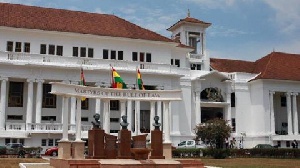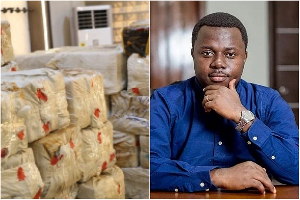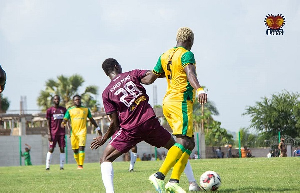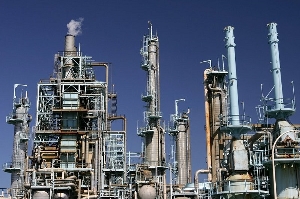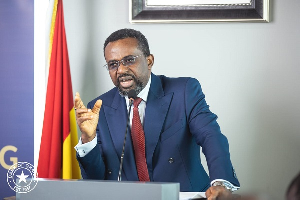Since the inception of Ghana’s Fourth Republic (from 1993 to present), we (Ghanaians) have regrettably lost billions of dollars meant for developmental projects through unbridled sleazes and corruption. And yet the methods employed by the successive governments in combating the canker have been extremely disappointing, so to speak.
Given the circumstances, we cannot help but to sadly conclude that the successive governments have abysmally failed to curb the rampant bribery and corruption, dubious judgment debt payments, stashing of national funds by some greedy opportunists, misappropriation of resources and crude embezzlement of funds meant for developmental projects by some public officials.
Obviously the revoltingly cyclical corrupt practices amongst the political elites have resulted in avoidable underdevelopment, excessive public spending, less efficient tax system , needless high public deficit and destabilization of national budgets, heightened capital flight and the creation of perverse incentives that stimulate income-seeking rather than productive activities.
But all said and done, the prevention and eradication of corruption should be a collaborative effort amongst governments and other interested parties to cooperate with one another with the support and involvement of groups outside the government such as civil society groups, non-governmental organisations and community-based organisations.
If, indeed, the prevention and eradication of corruption is a collaborative effort, why is it then that the successive governments and their Attorney Generals had woefully failed to cooperate with other interested parties to investigate, prosecute and retrieve the stolen monies from the impenitent nation wreckers?
"When public money is stolen for private gain, it means fewer resources to build schools, hospitals, roads and water treatment facilities.
“When foreign aid is diverted into private bank accounts, major infrastructure projects come to a halt. Corruption enables fake or substandard medicines to be dumped on the market, and hazardous waste to be dumped in landfill sites and in oceans. The vulnerable suffer first and worst (Ban Ki-moon, 2009)."
Corruption, as a matter of fact, impedes economic development by distorting markets and collapsing private sector integrity.
“Corruption also strikes at the heart of democracy by corroding rule of law, democratic institutions and public trust in leaders. For the poor, women and minorities, corruption means even less access to jobs, justice or any fair and equal opportunity” (UNDP 2016).
It goes without saying that corruption is a global phenomenon which requires a collaborative effort to prevent and eradicate.
More recently, a competent court of jurisdiction convicted two of the several corruption suspects in the erstwhile NDC administration and sentenced them to six and twelve years respectively.
In fact, I share in the sentiments of the concerned Ghanaians, who maintain that the sins of the two convicts are meagre in comparison with the other scandalous corruption cases which took place in the erstwhile Mahama administration.
We should, however, take comfort in the fact that the current Attorney General is seriously working towards bringing the suspects to book. Take, for example, on 14th March 2018, the State filed a case of causing financial loss against the former Chief Executive Officer of COCOBOD and the CEO of Zeera Group of Companies and Agricult Ghana Limited.
You may believe it or not, if the corrupt officials of the erstwhile NDC government had not embezzled the funds meant for various developmental projects, the NPP government would have enough funds at its disposal to undertake numerous developmental projects.
Whatever the case, we should, take solace in the fact that President Akufo-Addo has shown seriousness and commitment by establishing the Office of the Special Prosecutor with the responsibility of investigating, prosecuting and retrieving stolen monies from the corrupt public officials.
Some of us are of the firm conviction that the introduction of the Office of the Special Prosecutor is a pragmatic way of tackling the rampant bribery and corruption cases head-on.
How sweet would it be if the Special Prosecutor managed to roundup the conspiratorial plotters in the Woyome’s dubious judgement debt payment for instance?
And more so it would be a great news if the Special Prosecutor managed to claw-back all the embezzled monies in the scandalous corruption cases involving the infamous Bus Branding, SSNIT, Brazil World Cup, GYEEDA, AZONTABA, SADA, SUBAH, the purported $200million debt incurred on the faded STS housing deal, the dubious Embraer 190 Aircrafts and hanger for the Ghana Armed Forces and over a US$100 million oil revenue loss between 2011 and 2013 as reported by the Public Interest& Accountability Committee.
Dearest reader, isn’t it somewhat refreshing that the justice system is going to descend heavily not only on goat, cassava and plantain thieves, but as well as the hard criminals who hide behind narrow political colorations?
It would appear that the political criminals have the licence to steal. And, if that was not the case, how come the offending politicians and their minions often go scot free?
How on earth can individuals commit unpardonable crimes (gargantuan sleazes and corruption) against the state and get away with their misdeeds?
Well, the all-important question discerning Ghanaians should ask the men and women in charge is: are we really prepared to investigate, prosecute, convict and retrieve the stolen funds from the extremely greedy and corrupt public officials?
In sum, it is our fervent hope that the Special Prosecutor will work studiously and assertively in our almost impossible fight against the existential sleazes and corruption that have retrogressed our development.
Opinions of Monday, 9 April 2018
Columnist: Kwaku Badu

